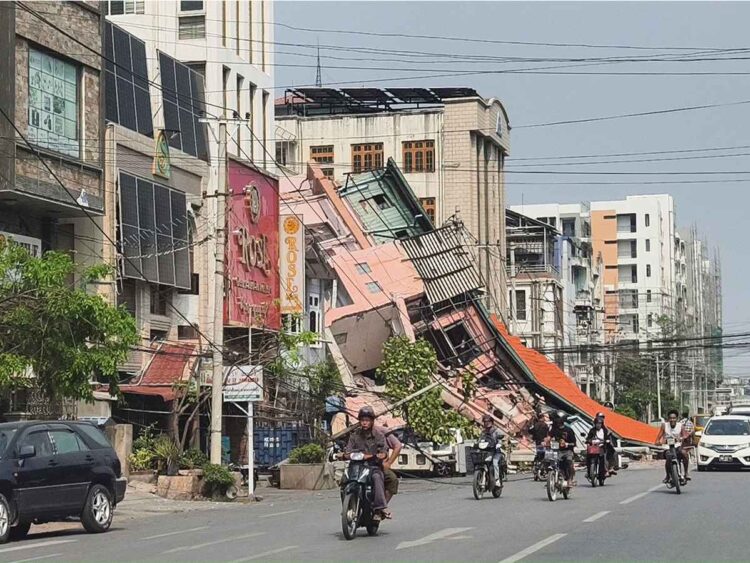The official number of those who died in a 7.7 magnitude earthquake in Central Myanmar on Friday has exceeded 1,600.
The New York Times on Saturday gave this information quoting the country’s military leaders.
According to the New York Times, rescue operations continue to find surviving people amidst the devastation occurring after the earthquake that occurred near Mandalay, the second largest city in Myanmar.
Due to this, volunteers and emergency employees have to search the debris of buildings, monasteries and mosques in search of the survivors.
According to the New York Times report, rescue parties working under difficult conditions with damaged power lines and infrastructure are facing serious challenges, as military regime has strictly holding on information.
The death toll is expected to increase, according to the initial estimate of the US Geological Survey, the number may exceed 10,000.
According to the New York Times, the earthquake has created concerns about the ability of Myanmar’s military rulers to maintain control over the country, which has been entangled in the civil war since the military coup in 2021.
Prior to the disaster, about 20 million people in Myanmar were facing severe lack of food and shelter due to the already ongoing struggle.
Despite the destruction, the Myanmar army continued its airstrikes on Friday evening and bombed the rebel -occupied village Nung Lynn in the northern Shan state of the country. Local residents are shocked by these attacks together, while the country is struggling with national disaster.
In response, the opposition -led Chhaya Sarkar, the National Unity Government announced that it would stop the aggressive military operations for two weeks in the earthquake affected areas, although it reserved the right to defend himself, as the New York Times reported.
This disaster has further instigated the growing anger towards military rule, there are reports that soldiers and police officers reached the disaster sites, but failed to help.
According to the New York Times, the volunteers expressed disappointment towards military rule, saying, “We need hands and kind hearts that help, not guns.”
The military rulers have accepted the seriousness of this disaster, which has also affected neighboring countries, including buildings in remote places like Bangkok in Thailand.
Emergency has been announced in six regions of Myanmar, including rebel controlled areas. Senior General Min Aung Holiing, head of the army, visited disaster areas and a temporary hospital in the capital of Myanmar.
Despite the international sanctions and isolated of the jute, the military government has made an immediate appeal to help, although it also has important military challenges.
Help personnel have to face obstacles such as collapse infrastructure, split areas and possible intervention of the army. Providing assistance due to difficulties and restrictions in money transfer in the country becomes even more complicated.






